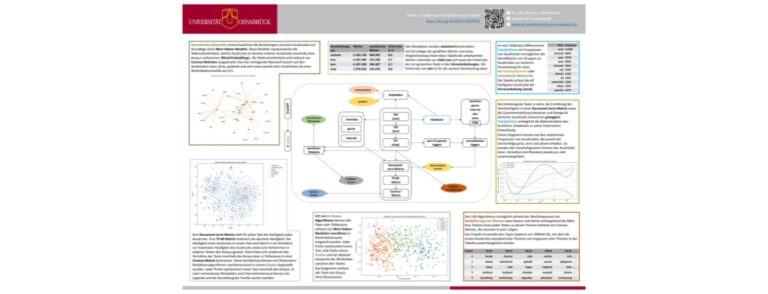
Das Projekt untersucht den öffentlich-schriftlichen Diskurs der Literaturvermittlung an höheren Schulen im 19. Jahrhundert für alle deutschen Staaten – außer
Short description of the project
The CRC 1187 Media of Cooperation is an interdisciplinary collaborative research centre consisting of 19 subprojects and more than 60 researchers from media studies, ethnology, sociology, computer science, linguistics, ubiquitous computing, science and technology studies, education, law and engineering. The research centre studies digital data-intensive media, which have emerged as cooperative tools, platforms and infrastructures on a broad front and have brought new challenges and potential dangers in the context of ubiquitous data processing of sensor technologies and semi-autonomously operating artificial intelligence. In this field of tension, the CRC conducts basic digital research that mediates between past and present and shapes future digital media.
At the CRC, the INF sub-project, “Infrastructures for Collaborative Sensory FDM Practices”, focuses on infrastructural research data management (RDM) solutions for praxeological research practice. This includes providing discipline-independent basic infrastructures, processes, and services for long-term archiving; modules, concepts, and tools for collaborative FDM workflows; specializing in sensor data and sensory practices; and teaching data protection skills.
Project content
The INF project further develops and maintains basic data infrastructures in close coordination with the IT infrastructures that already exist at the ZIMT. During development, special attention is paid to the legal and ethical guidelines, fundamentals of information security, data protection, and FAIR data principles because these areas play a critical role in sensory data practices. In addition, together with the sub-projects, the role machine learning methods can play in collecting and especially analyzing the research data collected will be explored. At the same time, the metadata interface is continuously updated and expanded to offer the created metadata description as comprehensive as possible, using a set of all data formats. Furthermore, interfaces are developed and evaluated to integrate external software systems via secure interfaces. This is achieved through a participatory, practice-based approach together with the communities of practice established in the SFB 1187. The INF project documents and reflects the research-based appropriation practices and cooperatively constituting research infrastructures and their methods.
Scientific coordination
Dr. Dominik Schrey
Telefon: +49 (0)271 740 4664
E-Mail: dominik.schrey@uni-siegen.de
Sekretariat
Anja Höse
Telefon: +49 (0)271-740-5181
E-Mail: anja.hoese@sfb1187.uni-siegen.de
Find out more at
www.mediacoop.uni-siegen.de/de/
Add your DH research project to the project showcase by submitting a short project description via the web form. Enter project data, a brief description, a graphic or visualization as well as a detailed description of the project content with technical assignment, addressees, added value, project managers, funding information and duration.

Das Projekt untersucht den öffentlich-schriftlichen Diskurs der Literaturvermittlung an höheren Schulen im 19. Jahrhundert für alle deutschen Staaten – außer
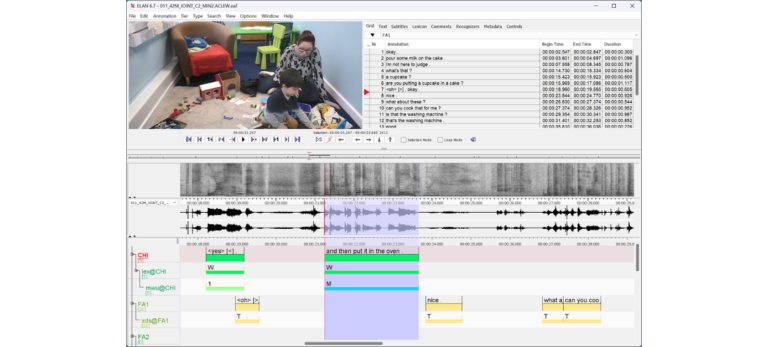
ELAN wird am Max-Planck-Institut für Psycholinguistik im Sprach-Archiv (TLA – The Language Archive) entwickelt. Es wird in der Programmiersprache Java
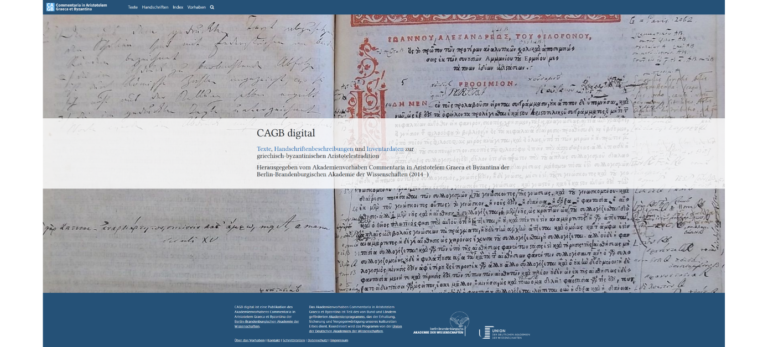
Das Akademienvorhaben hat die philologische Erschließung und kritische Edition antiker und byzantinischer Kommentare, Paraphrasen, Kompendien und Scholien zu den Schriften
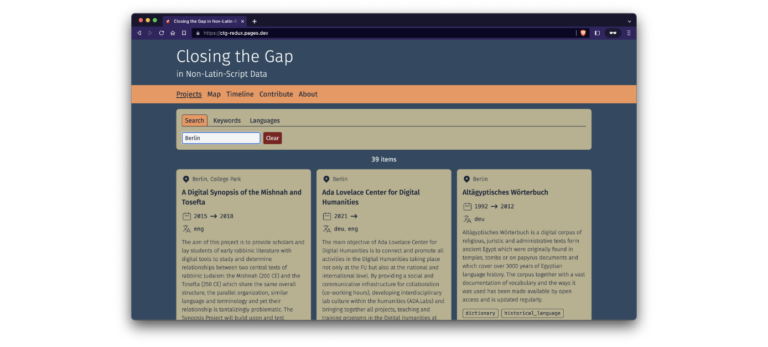
Das Fach ist BUA-finanziert und am Seminar für Semitistik und Arabistik angelegt. Es fokussiert sich auf die Analyse des status
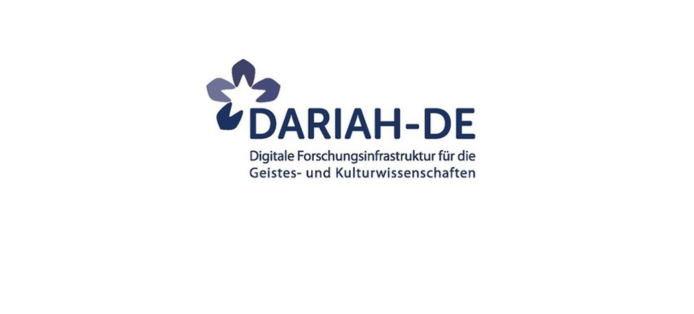
DARIAH-DE (gefördert 2011-2019) unterstützt die mit digitalen Ressourcen und Methoden arbeitenden Geistes- und Kulturwissenschaftler/innen in Forschung und Lehre. Dazu baut
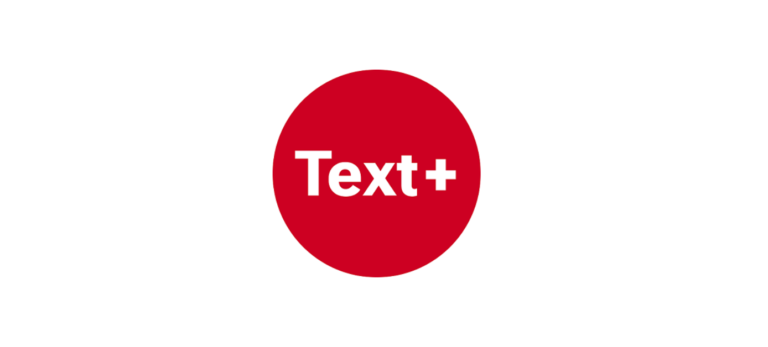
Die drei von Text+ adressierten Datendomänen Sammlungen, lexikalische Ressourcen und Editionen gehören zu den klassischen Feldern geisteswissenschaftlicher Forschung. Das Plus-Zeichen
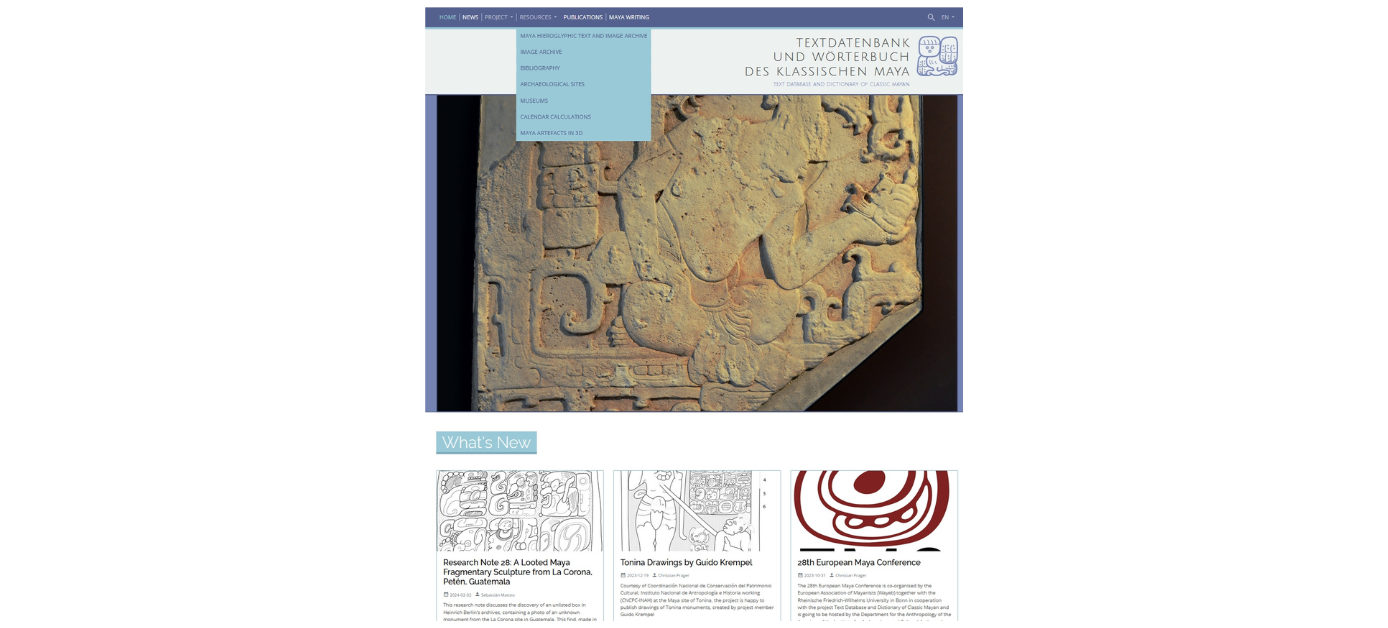
The long-term project funded by the NRW Academy of Sciences and Arts and the Union of German Academies at the University of Bonn explores the script and language of the Classic Maya culture. It aims to document Maya hieroglyphic inscriptions in a database and to catalog the hieroglyphic language in a digital dictionary. Sources such as literature, archives, and photo collections are researched, processed in the virtual research environment TextGrid, and published online. Information and images of inscriptions are stored in an object database and in the "Maya Image Archive," an open-access repository containing over 15,000 images, freely accessible to users.
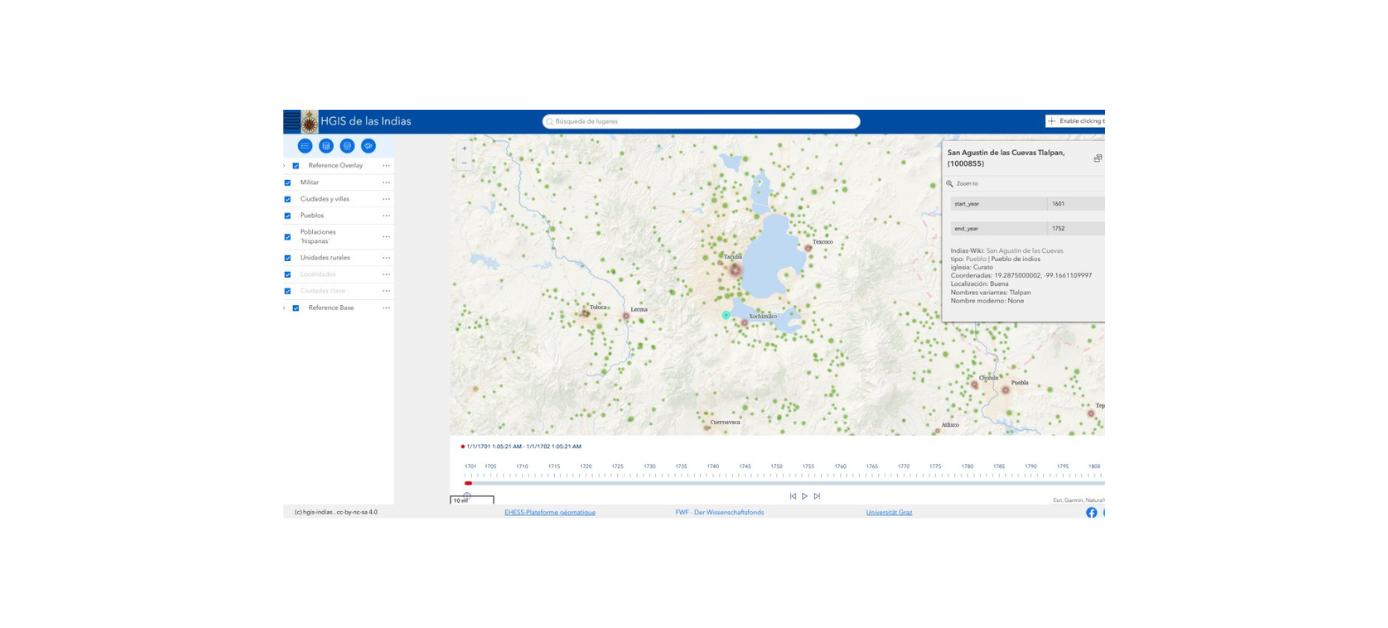
HGIS de las Indias ist eine historisch-geographische Datenbank zum Spanisch-Amerika der ausgehenden Kolonialzeit.
Wir verwenden Cookies und ähnliche Funktionen zur Verarbeitung von Daten. Die Zustimmung ist freiwillig und kann jederzeit widerrufen werden.